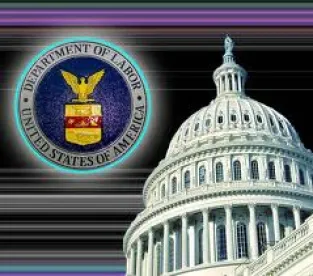Looking to send a strong message to employers who fail to provide a safe workplace, the Departments of Labor and Justice (DOL and DOJ, respectively) are teaming up to investigate and prosecute worker endangerment violations, namely, violations of the Occupational Safety and Health Act (OSH Act), the Migrant and Seasonal Agricultural Worker Protection Act (MSPA), and the Mine Safety and Health Act (MINE Act). Under a new worker endangerment initiative announced on December 17, federal investigators and prosecutors will look to possible environmental crimes committed by companies in conjunction with workplace safety violations in order to seek felony convictions and enhanced penalties available under federal environmental laws. With the DOJ’s additional focus on holding individual corporate wrongdoers accountable, corporate executives could find themselves criminally and civilly liable for their roles in such crimes.
It’s All About Imposing Bigger Penalties
The three federal worker safety statutes emphasized in the endangerment initiative generally only provide for misdemeanor penalties and monetary penalties that are significantly lower than various environmental statutes. By looking for environmental offenses to add to workplace safety violations, prosecutors will be able to seek felony convictions and enhanced penalties under Title 18 of the U.S. Code and the federal environmental laws. The stated intent is to “remove the profit from these crimes by vigorously prosecuting employers who break safety and environmental laws at the expense of American workers.”
In addition to prosecuting environmental crimes, the Environment and Natural Resources Division looks to strengthen its pursuit of civil cases that involve worker safety violations. The division believes that violations of the Clean Air Act, Resource Conservation and Recovery Act, and the Toxic Substances Control Act can have a direct impact on workers who must handle dangerous chemicals and other materials as part of their work duties.
Linking Safety Violations With Environmental Crimes
If an organization skimps on safety protections for its workers, will it also ignore environmental protections? The DOJ and DOL think so. The government points to statistics of workplace deaths and injuries, including 13 worker deaths on average in the U.S. each day, due in part to exposure to toxic and hazardous substances at work. According to John C. Cruden, Assistant Attorney General for the Justice Department’s Environment and Natural Resources Division, “employers who are willing to cut corners on worker safety laws to maximize production and profit will also turn a blind eye to environmental laws.”
In essence, this initiative provides the government with a mechanism to turn a workplace safety investigation into an examination of a company’s environmental compliance. The plan is for the DOJ’s Environment and Natural Resources Division and the U.S. Attorneys’ Offices to work in conjunction with the DOL’s Occupational Safety and Health Administration, Mine Safety and Health Administration, and Wage and Hour Division to increase the frequency and effectiveness of criminal prosecutions of worker endangerment violations.
Individual Accountability For Corporate Wrongdoers
The new worker endangerment initiative will target companies who have committed workplace safety and environmental violations. However, due to a recent push by the DOJ to focus on holding individuals accountable for corporate wrongdoing, company executives and decision-makers could be the target of increased scrutiny during the government’s investigation.
In September 2015, Deputy Attorney General Sally Quillian Yates issued a memorandum outlining the steps that DOJ attorneys should take in investigating corporate misconduct in order to hold more executives and managers accountable for corporate wrongdoing. The steps, some of which represent policy shifts, are:
-
Corporations must provide to the government all relevant facts relating to the individuals responsible for the misconduct in order to qualify for any cooperation credit;
-
Criminal and civil corporate investigations should focus on individuals from the inception of the investigation;
-
Criminal and civil attorneys handling corporate investigations should be in routine communication with one another;
-
Absent extraordinary circumstances or approved departmental policy, the DOJ will not release culpable individuals from civil or criminal liability when resolving a matter with a corporation;
-
DOJ attorneys should not resolve matters with a corporation without a clear plan to resolve related individual cases, and should memorialize any declinations as to individuals in such cases; and
-
Civil attorneys should consistently focus on individuals as well as the company and evaluate whether to bring suit against an individual based on considerations beyond that individual’s ability to pay.
The DOJ believes holding individuals accountable for corporate wrongdoing will be effective in reducing corporate misconduct because it will deter future illegal activity, incentivize changes in corporate behavior, hold the proper parties responsible for their actions, and promote the public’s confidence in our justice system.
What This Means For Employers
Companies subject to a workplace safety investigation can expect that their environmental compliance will also be investigated. If federal prosecutors find that a company violated environmental laws, they will pursue the stiffer criminal and civil penalties provided by those environmental statutes. In addition, because of the DOJ’s renewed focus on individual accountability, employers should expect that future safety and environmental investigations will focus on individual corporate actors who engaged in or authorized the wrongdoing in order to hold such individuals criminally and civilly liable.
Last, it’s unclear whether the Endangerment Initiative will impact employers subject to state OSHA plans. That said, many environmental statutes allow for federal over-filing, so we cannot eliminate the possibility that the Endangerment Initiative will be limited to federal jurisdictions.



 />i
/>i

